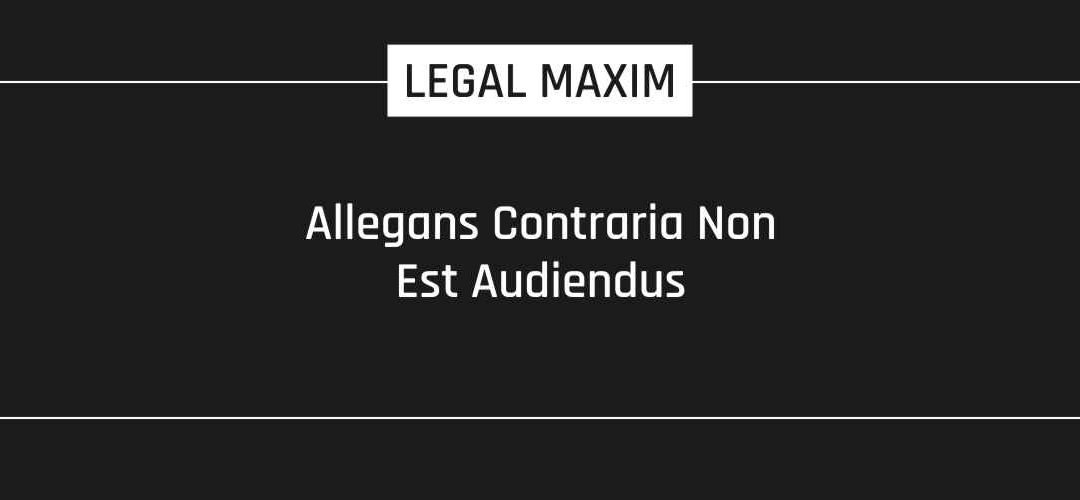Literal Meaning
A person making contradictory allegations are not to be heard
Origin
Latin
Explanation
The legal maxim ‘Allegans Contraria Non-Est Audiendus’ means that a person adducing to the contrary is not to be heard. This is the principle of good faith that a person should not be allowed to testify hot and cold at different times about the same event, in other words, he/she should not give contradictory statements. It is a concept of common sense and used to bring cross-examinations to an abrupt end.
The legal maxim is based on common sense and common justice and it is called ‘estoppel’ or any other name which is generally used in courts. In simple terms, the maxim means that if a person states something in good faith on one event and says the contrary about the same event, that shall not be allowed. The contradiction in the statements is likely to give the benefit of the doubt in cross-examinations to invalidate the statements. Thus, it can be comprehended by the principle that a person producing contradictory statements shall not be heard in a court of law.
Case laws
In the case of Hiralal Maganlal and Co. vs. Dcit, it was stated by the Hon’ble court that the principle of Allegans Contraria Non-Est Audiendus will be upheld as the instant case involved provisions under the Income Tax act and it was argued that Section 115 of Indian Evidence Act will not apply, however, it was held by the court that since section 115 of the Indian Evidence Act provides statutory recognition of the said principle which is applicable to all the judicial and quasi-judicial proceedings, the principle of Allegans Contraria Non-Est Audiendus shall be considered.
In case of Vallapareddy Sumitra Reddy and others vs. Kasireddy Laxminarayana Reddy and Ors.,it was held by the Hon’ble Court that the principle of Allegans Contraria Non-Est Audiendus means a party cannot be allowed to approbate and reprobate. It means that no one shall state contradictory things to each other. This maxim is applied in form of ‘estoppel’ in the said court proceedings.
This maxim has been written and submitted by Ms. Arushi Lamba during her course of internship at B&B Associates LLP. Ms. Arushi is a 4th-year law student of Panjab University, Chandigarh.

nice explanation